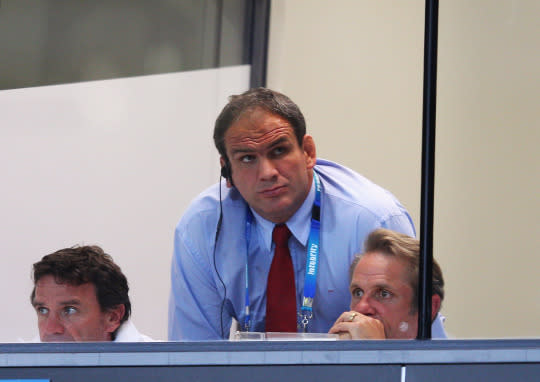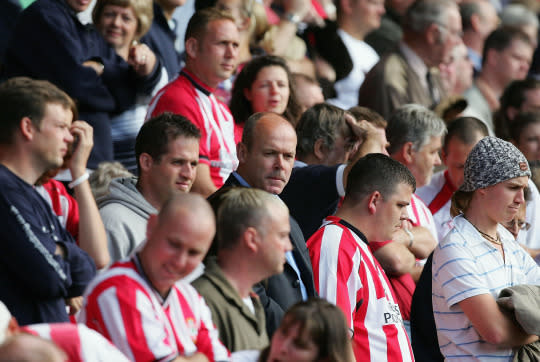REWRITING HISTORY: Did England’s Rugby World Cup win elevate heroes too high?
Jonny Wilkinson’s famous drop goal earned England the 2003 Rugby World Cup. But did that historic success balloon the talents of the coaching staff and players to an echelon they didn’t deserve?

When England created history at the 2003 Rugby World Cup by becoming the first team from the northern hemisphere to lift the Webb Ellis Cup, they were quite rightly deemed heroes.
Jonny Wilkinson’s memorable drop goal in extra-time of that World Cup final in Sydney 12 years ago secured a 20-17 victory against hosts Australia. We can probably all remember it like yesterday – the break by Matt Dawson, Martin Johnson entered the ruck, the pass back to Wilkinson and the sublime kick through the posts.
A fanfare of celebrations followed. OBEs, MBEs and knighthoods were dished out and England’s victorious number 10 became a significant rival to England’s number 7 David Beckham as the heartthrob to adorn posters on the bedroom walls up and down the country.
But did that World Cup victory result in the winning squad and backroom staff being propelled to a level beyond what they had achieved?
Johnson, the captain and the man who got to lift the Webb Ellis Cup inside ANZ Stadium, or Telstra Stadium as it was known back then, was the biggest case in point.
He was heroic on the pitch, let’s not get this wrong, but would he have become the national coach five years down the line if he wasn’t a World Cup winner?
It was in 2008 that Johnson was named England coach. He had never coached at club level, yet got the national team job. Imagine that happening in football – Wayne Rooney being named England manager after hanging his boots up without having done an apprenticeship by dipping his toe into the world of club management.

Yes, Johnson led England to the Six Nations title in 2011. But that same year, his side were dumped out of the World Cup in the quarter-finals by France. It was a tournament marred by off-field problems too. Johnson quit shortly afterwards, the experiment of his appointment over.
Sir Clive Woodward, knighted after leading England to that World Cup success in 2003, had worked his way through club rugby before getting the job of leading the national team. That, it seems, was the right path to take, rather than walking into a role on reputation alone.
After quitting his England position a year after the World Cup, Woodward landed the dream role of coaching the British and Irish Lions in 2004. A 3-0 defeat to New Zealand’s All Blacks was not what he had anticipated and, with his tail between his legs, it was time for something different.
But did his undoubted talents as a rugby coach really make him deserving of an appointment as Performance Director at Southampton Football Club, where his friend Rupert Lowe was chairman?
Imagine a football coach rocking up on a rugby training field and dishing out the instructions on line-outs and scrums.
It was no surprise that the experiment lasted two months, Woodward reportedly quitting due to a strained relationship with manager Harry Redknapp, largely resulting from the appointment of head of sports science, Simon Clifford, according to the reports.
Yet there were more twists.
A plan to name Woodward as Redknapp’s successor, despite no experience of the round ball game, was shelved and George Burley appointed. But he did become Director of Football, albeit for no more than eight months.
Again, can you imagine it happening the other way round and Redknapp being involved in the England rugby team?

Undeterred by his sport-hopping, Woodward linked up with the British Olympic Association to offer his expertise. He even acted as Deputy Chef de Mission for the 2008 Games in Beijing and was a part of the team for the 2012 London Olympics as Director of Sport. In fairness, he clearly played a role in that golden summer.
Mike Catt and Josh Lewsey, two of the backs from 2003, are now both chasing another Rugby World Cup dream having stayed within the sport that made them.
Catt is part of England coach Stuart Lancaster’s backroom team, while Josh Lewsey has crossed to the dark side as Head of Rugby for Wales.
Other team-mates from eight years ago have garnered successful media careers that would possibly not have been as fruitful had they returned from Australia with World Cup runners-up rather than victory medals.
Matt Dawson, Will Greenwood, Lawrence Dallaglio, Lewis Moody and Jason Robinson have all been in front of the cameras or the microphone, some boasting their own radio and television shows. Some have danced in the ballroom (Dawson and Ben Cohen), others on ice too (Kyran Bracken) – all in the name of entertainment.
We even have a member of the Royal Family to have emerged in the shape of Mike Tindall, who married Zara Phillips as love blossomed between sporting royalty. Perhaps Tindall’s elevation is the best story of all.
Ultimately, thanks to Wilkinson’s successful kick, the class of 2003 can all call themselves celebrities. Had he missed, their futures could have taken a very different turn.

 Yahoo Sport
Yahoo Sport 






































